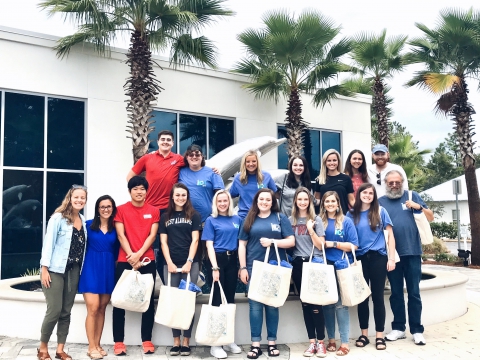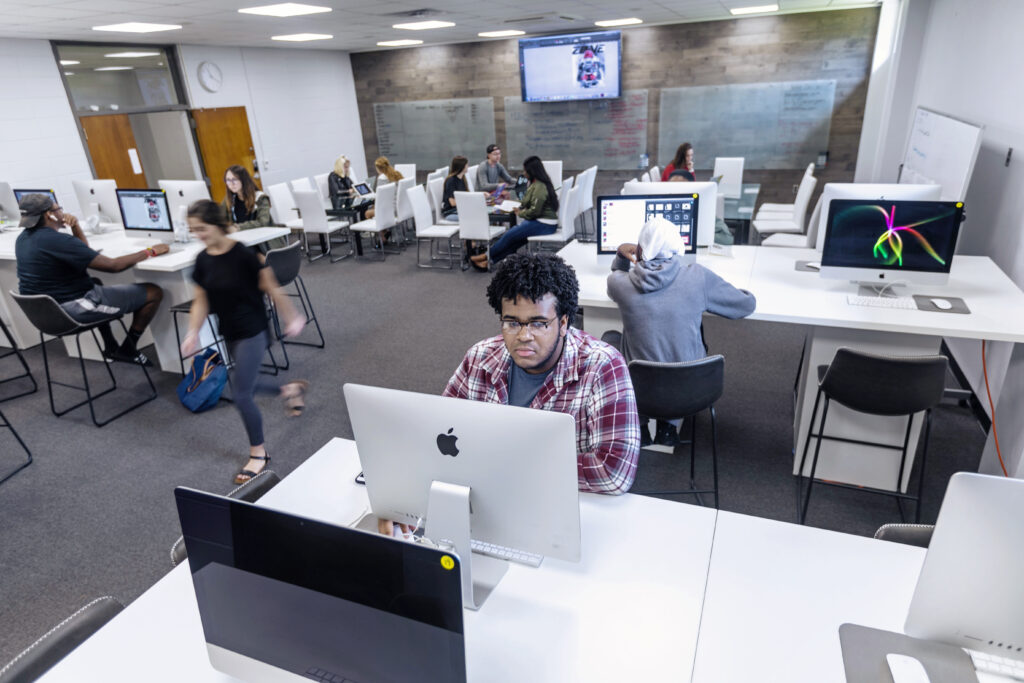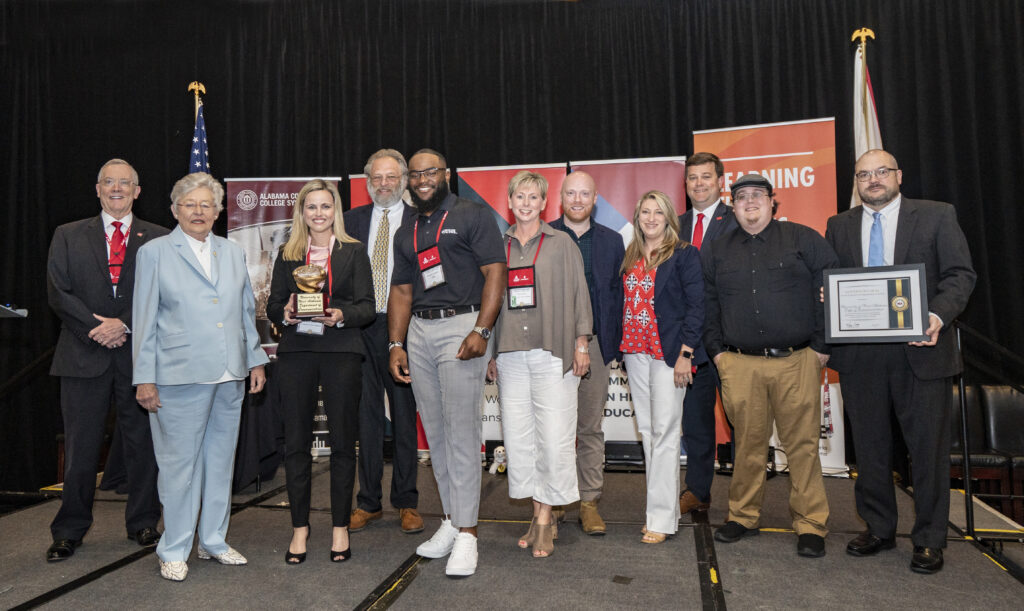UWA’s Integrated Marketing Communications program earns state-level award

Students in UWA’s Integrated Marketing Communications program completed industry immersion activities at the Gulf Shores Tourism office.
Internships were a key to work-based learning commendation
Story: Phillip Tutor | Photos: Submitted
When Dr. Amy Jones, chair of the University of West Alabama’s Department of Communications, made a presentation recently for a state-level awards program, she didn’t go empty-handed.
Along with UWA President Dr. Ken Tucker, she invited Integrated Marketing Communications major Demetrius Battle to introduce his portfolio to judges from the Alabama Office of Apprenticeship.
The result: Boosted by Jones and Battles’ presentation and the work of the department’s faculty, UWA’s IMC program received one of the inaugural Governor’s Seal of Excellence in Work-Based Learning awards.
“Frankly, that’s an intimidating situation for a college student,” Jones said. “But he did such a phenomenal job. That’s what shows (UWA students’) abilities and how ready they are to be successful in their careers. And it was his presentation, I think, that took it to the next level.”
The governor’s awards program “seeks to recognize the outstanding progress made in work-based learning in order to bring to scale the most effective examples,” according to the state’s apprenticeship office. With its commitment to student internships, UWA’s IMC program allowed Jones to describe it as “a work-based learning model” in her presentation.

IMC classroom facilities mimic a fast-pasted, creative, multimedia work environment.
The IMC major in Livingston includes three tracks of study: traditional, graphic design and sports communications. The traditional track includes upper-level communications, marketing and behavioral-science courses. The graphic design track not only includes its namesake courses but also instruction in photography and media buying. With courses in sports writing, sports magazines and sports media issues, the sports communication track prepares graduates for careers in one of communications’ popular fields.
In her presentation, Jones highlighted vital statistics about UWA’s IMC program, most notably its 332 student internships (260 undergraduate, 72 graduate) coordinated since 2014. Seventy-three percent of the interns worked for Alabama-based companies; 38 percent of the interns earned salaries; and 35 percent of the intern employers hired students after they graduated from UWA. The opportunities came from employers in advertising, marketing public-relations agencies, non-profit organizations, public service and governmental offices, media, sports leagues, education and real estate.
UWA’s application for the awards included three letters of support from industry partners and three letters of support from people who had successfully participated in its program, said Jones, who felt it was important to show the judges that UWA’s faculty is adept at answering questions about job placement and skills after graduation.
“We have a wonderful team of faculty that all feel strongly about helping our students prepare for their careers. And we have been able to build that into every course that they take.”
— Dr. Amy Jones
IMC majors, she explained, leave UWA with professional resumes that have been edited by faculty members and web-based portfolios that illustrate their potential to employers.
“We know that 47 percent of (UWA’s) student population identify as first generation,” Jones said. “They feel a tremendous amount of pressure to be successful after they graduate from college, and many of them lack confidence transitioning from college to the workplace. It’s something that we see in our graduating seniors.
“They’re not just going to college for the knowledge. They’re going to college to be successful in that next level, and that next level for them is their career.”
But in what field? In what job? It’s common for visiting students interested in UWA to ask about employment possibilities for IMC majors, Jones said.
“We have a wonderful team of faculty that all feel strongly about helping our students prepare for their careers,” she said. “And we have been able to build that into every course that they take.”
